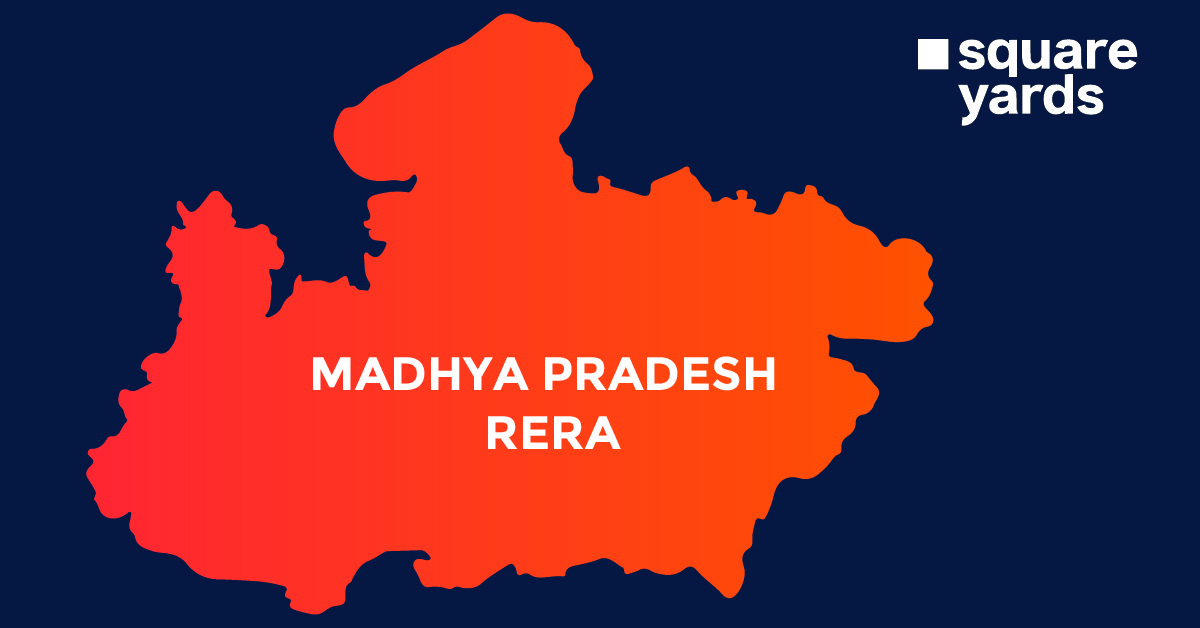Weight conversions seem tricky to many and monotonous to some. Despite using it most of the time, we use calculators whenever we need to convert. Converting ounces to kilograms may seem complicated, but it is very straightforward. A kilogram as a weight unit is commonly used in India for measuring body weight, food, vegetables, groceries, and much more. However, the ounce is popular worldwide and used for measuring food mostly, but the preferred measuring unit is the kilogramme.
Every time you open a recipe that lays out measurements in ounces (oz) and you can’t figure out the numbers? Well, let’s learn how to convert 1 ounce to kg and understand the two values in detail.
This article will give you an overview of ounces to kilogram – definitions, formulas, history, and examples.
Table of contents
What is an Ounce?
An ounce is a measurement unit for weight, mass, or volume. The measuring unit comes from the Latin word “uncia,” which means “one-twelfth.” However, according to the Avoirdupois system, an ounce is 1/16th of an avoirdupois pound and roughly equal to 28.35 grammes, whereas a troy ounce weighs 31.10 grams.
The conventional unit of measurement for the United States and the United Kingdom is the ounce. In the US, it is mostly used to weigh body weight, groceries, and packaged food. Additionally, it is used to gauge the density of paper and fabric, boxing gloves, mail products, and more. The weight of precious metals like platinum, silver, gold, rhodium, palladium, and more is most frequently measured in ounces.
The ounce is denoted by the symbol ‘oz’ which is derived from the Italian and Spanish word, ‘onza.’ The ounce is the smallest unit of measurement, almost equal to the weight of a slice of bread.
Current Use of Ounce
The United States and the United Kingdom frequently use the ounce as a unit of measurement. It is used to measure a variety of weights, including food items such as chips, bread, packaged foods, pencils, the mass density of cloth and paper, body weight, and more. While you can use this measurement for items like honey or yoghurt, it’s most typically used with dry ingredients. Ounces are a precise weight when they are mentioned in a recipe.
History of an Ounce
The word “ounce” is a derivative of Anglo-Norman French. It was referred to as Unce or ounce. However, the word onza, as it was abbreviated, came from mediaeval Italian. ‘Oncia’ is the current Italian word, while the metric system has long since taken over across the former Roman Empire’s territory. The units of measurement that are related to the ideas of mass and weight are grams and ounces, respectively. In the United States, ounces are frequently used to measure weight.
What is a Kilogram?
The kilogram is the base unit of mass in the metric system (International System of Units). It is denoted by the unit symbol ‘kg.’ A kilogramme is frequently used for applications in science, engineering, and commerce across the world. Colloquially, it is also known as a kilo.
Scientifically, we can define the kilogram in the context of three fundamental physical constants: a specific atomic transition frequency, the speed of light, and the Planck constant.
However, if we talk about its everyday use, it is used to measure the weight of people and basic objects, as well as food items such as flour, vegetables, butter, sugar, and more.
Current Use of Kilogram
The kilogram has numerous applications in science, engineering, and business because it is the accepted unit for the measurement of mass. A kilogram is also employed in India and a few other nations to determine body weight. The United States weighs body mass in pounds, whereas countries such as India, Australia, and New Zealand use kilogrammes. For example, if a person weighs 90 kg, the same weight in the United States is equivalent to 198 lbs. Additionally, practically every nation on the globe uses a kilogram as a measuring unit.
History of Kilograms
The original definition of the kilogramme was framed in 1795. It referred to the mass of one litre of water. The original definition of the kilogram was approved to be within 30 parts per million. It was superseded as the measure of mass in 1799 by the platinum Kilogramme des Archives.
Most mass measurements include balancing. We determine the value of an unknown mass in terms of a known mass value by comparing the mass of the unknown body to the mass of a known body. Since gravity can affect the balance of both masses, balance can exist in space and in places where there is no gravitational pull. Thus, to measure mass, the SI unit is the kilogram.
Relationship Between Ounces and Kilograms
The most important stage is to determine the relationship between the two units before conversion. It explains how 1 ounce to kg is equivalent to and vice versa. The relationship between ounces to kilograms can be defined as –
1 ounce = 0.0283495 kilogram
1 kilogram = 35.274 ounces
Now that we know the values of the two units and how they are related to each other, let’s understand how to convert an ounce to kg with formulas and examples.
How to Convert Ounce to Kilogram?
The conversion of ounces to kilograms is quite simple. All you have to do is to multiply the value of ounces by 0.0283495. By resolving the equation, we can determine the value in kilos.
It is quite simple, right?
Well, once you know the ounce to kg formula and solve a few examples as described below, the ounce to kg conversion will be at your fingertips.
Formula and Examples of Ounces to Kilogram Conversion
The formula to convert ounces to kg can be expressed as follows –
Kilogram (kg) = Value of Ounce (oz) x 0.0283495
Let us go through a few examples to understand the ounce to kg conversion.
Example 1 – How many 6 ounces in a kg?
Answer: Put the value of ounces in the above equation, and the result will be –
Kilo = 6 x 0.0283495 = 0.1700097 kg
Hence, 6 ounces in a kg is equivalent to 0.1700097 kg.
Example 2 – Convert 10 ounces to kg
Answer: Following the same formula and steps as above, the result will be –
Kilogram = 10 x 0.0283495 = 0.283495 kg.
Hence, 10 ounces is equivalent to 0.283495 kg.
Example 3 – Convert 32-ounce to kg
Answer: Applying the same formula, the result is –
Kg = 32 x 0.0283495 = 0.907184 kg.
Thus, 32-ounce to kg is equivalent to 0.907184 kg.
Example 4 – Let’s try a bigger number to evaluate the value of ounces to kg.
How many are 800 ounces in a kg?
Answer: With the same formula – the result is –
Kg = 800 x 0.0283495 = 22.6796 kg.
Thus, 800 ounces is equivalent to 22.6796 kilograms.
Don’t miss It!
| Pounds to KG | Pounds to Kilogram Conversion: Conversion Table, Examples |
| Fahrenheit to Celsius | How to Convert Fahrenheit to Celsius: Formula & Examples |
| Celsius to Kelvin | How to Convert Celsius to Kelvin: Formula & Examples |
| CM to meter | How to Convert CM to meter: Formula & Examples |
| CM to ft Inch | How to Convert cm to ft inch: Formula & Examples |
| Marla to sq yd | How to Convert Marla to sq yd: Formula & Examples |
| Liter to Gallon | How to Convert Liter to Gallon: Formula & Examples |
| Sq CM to Sq M | How to Convert Sq CM to Sq M: Formula & Examples |
Ounce to Kilograms Conversion Table
| Ounces (oz) | Kilograms (kg) | Ounces to Kilograms (Oz to Kg) |
| 1 oz | 0.0283495 kg | 1 oz is equal to 0.0283495 kg |
| 2 oz | 0.056699 kg | 2 oz is equal to 0.056699 kg |
| 3 oz | 0.0850485 kg | 3 oz is equal to 0.0850485 kg |
| 4 oz | 0.113398 kg | 4 oz is equal to 0.113398 kg |
| 5 oz | 0.1417475 kg | 5 oz is equal to 0.1417475 kg |
| 6 oz | 0.170097 kg | 6 oz is equal to 0.170097 kg |
| 7 oz | 0.1984465 kg | 7 oz is equal to 0.1984465 kg |
| 8 oz | 0.226796 kg | 8 oz is equal to 0.226796 kg |
| 9 oz | 0.2551455 kg | 9 oz is equal to 0.2551455 kg |
| 10 oz | 0.283495 kg | 10 oz is equal to 0.283495 kg |
| 11 oz | 0.3118445 kg | 11 oz is equal to 0.3118445 kg |
| 12 oz | 0.340194 kg | 12 oz is equal to 0.340194 kg |
| 13 oz | 0.3685435 kg | 13 oz is equal to 0.3685435 kg |
| 14 oz | 0.396893 kg | 14 oz is equal to 0.396893 kg |
| 15 oz | 0.4252425 kg | 15 oz is equal to 0.4252425 kg |
| 16 oz | 0.453592 kg | 16 oz is equal to 0.453592 kg |
| 17 oz | 0.4819415 kg | 17 oz is equal to 0.4819415 kg |
| 18 oz | 0.510291 kg | 18 oz is equal to 0.510291 kg |
| 19 oz | 0.5386405 kg | 19 oz is equal to 0.5386405 kg |
| 20 oz | 0.56699 kg | 20 oz is equal to 0.56699 kg |
| 21 oz | 0.5953395 kg | 21 oz is equal to 0.5953395 kg |
| 22 oz | 0.623689 kg | 22 oz is equal to 0.623689 kg |
| 23 oz | 0.6520385 kg | 23 oz is equal to 0.6520385 kg |
| 24 oz | 0.680388 kg | 24 oz is equal to 0.680388 kg |
| 25 oz | 0.7087375 kg | 25 oz is equal to 0.7087375 kg |
| 26 oz | 0.737087 kg | 26 oz is equal to 0.737087 kg |
| 27 oz | 0.7654365 kg | 27 oz is equal to 0.7654365 kg |
| 28 oz | 0.793786 kg | 28 oz is equal to 0.793786 kg |
| 29 oz | 0.8221355 kg | 29 oz is equal to 0.8221355 kg |
| 30 oz | 0.850485 kg | 30 oz is equal to 0.850485 kg |
| 31 oz | 0.8788345 kg | 31 oz is equal to 0.8788345 kg |
| 32 oz | 0.907184 kg | 32 oz is equal to 0.907184 kg |
| 33 oz | 0.9355335 kg | 33 oz is equal to 0.9355335 kg |
| 34 oz | 0.963883 kg | 34 oz is equal to 0.963883 kg |
| 35 oz | 0.9922325 kg | 35 oz is equal to 0.9922325 kg |
| 36 oz | 1.020582 kg | 36 oz is equal to 1.020582 kg |
| 37 oz | 1.0489315 kg | 37 oz is equal to 1.0489315 kg |
| 38 oz | 1.077281 kg | 38 oz is equal to 1.077281 kg |
| 39 oz | 1.1056305 kg | 39 oz is equal to 1.1056305 kg |
| 40 oz | 1.13398 kg | 40 oz is equal to 1.13398 kg |
| 41 oz | 1.1623295 kg | 41 oz is equal to 1.1623295 kg |
| 42 oz | 1.190679 kg | 42 oz is equal to 1.190679 kg |
| 43 oz | 1.2190285 kg | 43 oz is equal to 1.2190285 kg |
| 44 oz | 1.247378 kg | 44 oz is equal to 1.247378 kg |
| 45 oz | 1.2757275 kg | 45 oz is equal to 1.2757275 kg |
| 46 oz | 1.304077 kg | 46 oz is equal to 1.304077 kg |
| 47 oz | 1.3324265 kg | 47 oz is equal to 1.3324265 kg |
| 48 oz | 1.360776 kg | 48 oz is equal to 1.360776 kg |
| 49 oz | 1.3891255 kg | 49 oz is equal to 1.3891255 kg |
| 50 oz | 1.417475 kg | 50 oz is equal to 1.417475 kg |
| 51 oz | 1.4458245 kg | 51 oz is equal to 1.4458245 kg |
| 52 oz | 1.474174 kg | 52 oz is equal to 1.474174 kg |
| 53 oz | 1.5025235 kg | 53 oz is equal to 1.5025235 kg |
| 54 oz | 1.530873 kg | 54 oz is equal to 1.530873 kg |
| 55 oz | 1.5592225 kg | 55 oz is equal to 1.5592225 kg |
| 56 oz | 1.587572 kg | 56 oz is equal to 1.587572 kg |
| 57 oz | 1.6159215 kg | 57 oz is equal to 1.6159215 kg |
| 58 oz | 1.644271 kg | 58 oz is equal to 1.644271 kg |
| 59 oz | 1.6726205 kg | 59 oz is equal to 1.6726205 kg |
| 60 oz | 1.70097 kg | 60 oz is equal to 1.70097 kg |
| 61 oz | 1.7293195 kg | 61 oz is equal to 1.7293195 kg |
| 62 oz | 1.757669 kg | 62 oz is equal to 1.757669 kg |
| 63 oz | 1.7860185 kg | 63 oz is equal to 1.7860185 kg |
| 64 oz | 1.814368 kg | 64 oz is equal to 1.814368 kg |
| 65 oz | 1.8427175 kg | 65 oz is equal to 1.8427175 kg |
| 66 oz | 1.871067 kg | 66 oz is equal to 1.871067 kg |
| 67 oz | 1.8994165 kg | 67 oz is equal to 1.8994165 kg |
| 68 oz | 1.927766 kg | 68 oz is equal to 1.927766 kg |
| 69 oz | 1.9561155 kg | 69 oz is equal to 1.9561155 kg |
| 70 oz | 1.984465 kg | 70 oz is equal to 1.984465 kg |
| 71 oz | 2.0128145 kg | 71 oz is equal to 2.0128145 kg |
| 72 oz | 2.041164 kg | 72 oz is equal to 2.041164 kg |
| 73 oz | 2.0695135 kg | 73 oz is equal to 2.0695135 kg |
| 74 oz | 2.097863 kg | 74 oz is equal to 2.097863 kg |
| 75 oz | 2.1262125 kg | 75 oz is equal to 2.1262125 kg |
| 76 oz | 2.154562 kg | 76 oz is equal to 2.154562 kg |
| 77 oz | 2.1829115 kg | 77 oz is equal to 2.1829115 kg |
| 78 oz | 2.211261 kg | 78 oz is equal to 2.211261 kg |
| 79 oz | 2.2396105 kg | 79 oz is equal to 2.2396105 kg |
| 80 oz | 2.26796 kg | 80 oz is equal to 2.26796 kg |
| 81 oz | 2.2963095 kg | 81 oz is equal to 2.2963095 kg |
| 82 oz | 2.324659 kg | 82 oz is equal to 2.324659 kg |
| 83 oz | 2.3530085 kg | 83 oz is equal to 2.3530085 kg |
| 84 oz | 2.381358 kg | 84 oz is equal to 2.381358 kg |
| 85 oz | 2.4097075 kg | 85 oz is equal to 2.4097075 kg |
| 86 oz | 2.438057 kg | 86 oz is equal to 2.438057 kg |
| 87 oz | 2.4664065 kg | 87 oz is equal to 2.4664065 kg |
| 88 oz | 2.494756 kg | 88 oz is equal to 2.494756 kg |
| 89 oz | 2.5231055 kg | 89 oz is equal to 2.5231055 kg |
| 90 oz | 2.551455 kg | 90 oz is equal to 2.551455 kg |
| 91 oz | 2.5798045 kg | 91 oz is equal to 2.5798045 kg |
| 92 oz | 2.608154 kg | 92 oz is equal to 2.608154 kg |
| 93 oz | 2.6365035 kg | 93 oz is equal to 2.6365035 kg |
| 94 oz | 2.664853 kg | 94 oz is equal to 2.664853 kg |
| 95 oz | 2.6932025 kg | 95 oz is equal to 2.6932025 kg |
| 96 oz | 2.721552 kg | 96 oz is equal to 2.721552 kg |
| 97 oz | 2.7499015 kg | 97 oz is equal to 2.7499015 kg |
| 98 oz | 2.778251 kg | 98 oz is equal to 2.778251 kg |
| 99 oz | 2.8066005 kg | 99 oz is equal to 2.8066005 kg |
| 100 oz | 2.83495 kg | 100 oz is equal to 2.83495 kg |
Difference between Ounces and Kilograms
Ounces and Kilograms may sound similar but they differ in various contexts. Some of them are as follows:
| Basis of Comparison | Ounce | Kilogram |
| Symbol | Oz | Kg |
| Definition | The Ounce is just another name for various different units of weight, mass, or volume. The unit is a derivation of an Ancient Roman unit of measurement- Uncia. | The Kilogram is the base unit of mass in the metric system (International System of Units). It has the unit symbol kg. |
| Relation | 1 Ounce = 0.0283495 Kg. | 1 Kg = 35.274 Ounces |
| Size | An Ounce is smaller than a Kilogram. | A Kilogram is 35 times greater than an Ounce. |
| Use | An Ounce is used most often in the United States and the United Kingdom. It is used to weigh the mass of food portions and the packaged foods, the areal density of fabric and paper, and more. | As it’s the standard unit for the measurement of mass, it has various scientific, engineering, and commercial applications. In India and a few other countries, Kilograms are also used to measure the weight of the person. |
| Applicability | It is used mainly in the United States and the United Kingdom among a few other countries. | Since it has scientific applications, it is used worldwide. |
| Acceptance | It is accepted as the British Imperial system and the United Customary system of unit. | It is the SI unit of mass in the metric system. |
FAQ’s About Ounces to Kilograms
Q1. How many kilos are in 5 ounces?
The ounce to kilogramme conversion is simple. Thus, 5 ounces multiplied by 0.0283495 is equal to 0.141748.
Q2. Which is heavier, 1 kg or 2 lbs?
It is stated that a kilogram (kg) weighs 2.2 times more than a pound (lbs). As a result, 2.26 pounds is equal to one kilo of mass.
Q3. Is a gramme bigger than a pound?
Approximately 453.592 grams make up 1 pound. Since 100 grams is significantly smaller than 453.592, a pound would be bigger as a unit.
Q4. Why is a pound used instead of a kg?
While a kilogramme is a metric unit of measurement, a pound is an imperial unit used to quantify mass or weight and is most commonly used in the United States and the UK.
One kilogram is equivalent to 2.2 pounds. Therefore, a kilo weighs 2.2 times as much as a pound.
Q5. What is the formula for converting ounces to kilogrammes?
The formula to convert ounces to kilograms is as follows: Kilograms = value of Ounces x 0.0283495.
Q6. How many ounces are in 1 kilogramme?
There are 35.274 ounces in 1 kilogramme.
Q7. What are ounces and kilogrammes used for?
In the United States and the United Kingdom, the ounce is most frequently used. The weight of portion sizes and packaged goods, a bag of chips, pencils, the density of cloth and paper, and other things are all weighed using this method. On the other hand, a kilogramme is used to determine a person’s weight and the weight of precious stones.
































